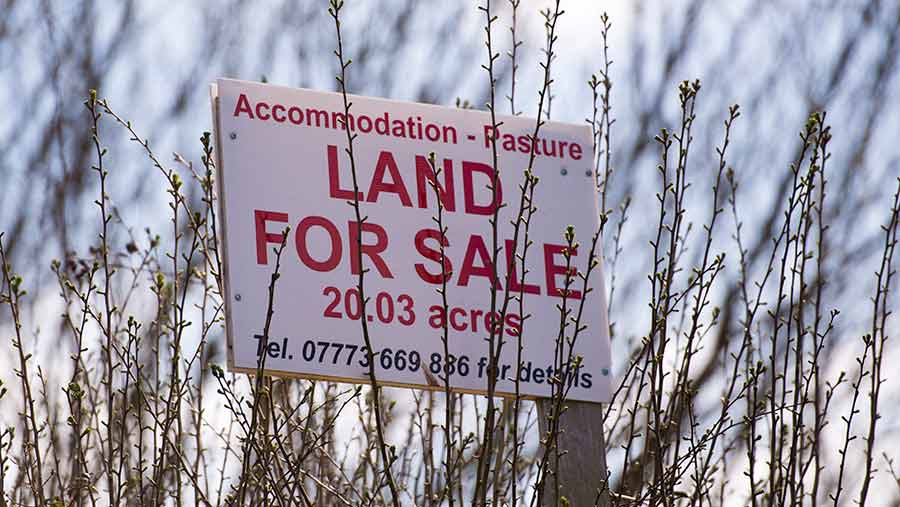We assess farmland market across Britain post-Brexit
 © FLPA / John Eveson/Rex/Shutterstock
© FLPA / John Eveson/Rex/Shutterstock Farmers chasing quality land are active across England, Scotland and Wales, as the number of acres on the market stays relatively steady with last year.
Rollover funds and non-farmer buyers are playing a leading role in some regions, but evidence of a post-referendum effect is unclear, thought some buyers are being more cautious.
Ben Pike gathers evidence of what’s happening on the ground across Britain
See also: Brexit – market impact and outlook for farming sectors
South West
Tania Harvey, Farm agency negotiator, Stags
We have seen strong demand from farmers for local bare land. Commercial farm buyers have been few and far between and even farms in excess of 200 acres have had to be carefully lotted to find buyers.
All pre-Brexit deals are still in place and sellers have been surprised about how positive the mood is.
South East
Richard Liddiard, Partner, Carter Jonas
Best-in-class land continues to attract interest, particularly from farmers with rollover funds.
The referendum result may cause a further rush to land as a safe haven while currency and markets enter a period of turmoil. It reinforces the unique nature of land as a finite resource with special asset potential.
East Anglia
Simon Gooderham, director, Cheffins
Market caution, despite interest, appears to be leading to fewer buyers. There is an increasingly wide range of values for smaller blocks.
It is too early to predict how values will be affected by the Leave vote, but the market is finely balanced and average values will probably remain stable, at best, over the next year.
East Midlands
Robert Bloomfield Chartered surveyor, Berrys
This spring the average price for arable sales was £9,000/acre and £7,800/acre for pasture.
Local farmer buyers are being supported by rollover money. I believe there is more to come this autumn.
Banks are putting the squeeze on some farmers and there will be some retirement sales as people restructure.
West Midlands
Matthew Barker, partner, Fisher German
We have seen a growing trend of non-agricultural purchasers. A survey indicates over the past two years, 34% of land transactions exceeding 10 acres have been acquired by those with no agricultural background.
Early indications are that the market may remain largely unaffected by Brexit, but we watch with interest amid talk of more land coming to the market.
North East
Andrew Black, partner, Savills
Supply is up in Yorkshire, static in Cumbria and well down in Northumberland, with commercial farms in short supply.
The best land still achieves more than £10,000/acre and demand for amenity properties is also strong. Some poorer land, where neighbours are unable to buy, is challenging to sell.
North West
Tony Rimmer, director, Rostons
Demand is very localised and dependent on guide price. If sensibly priced, good sales can be achieved.
The implications of Brexit have yet to settle and will lead to more caution, but I believe demand will exist, albeit with the market showing more caution than the increases in value reported in recent years.
Scotland
Simon Brown, partner, CKD Galbraith
We have continued to see a strong demand for farms that are sensibly priced, with interest locally, nationally and internationally.
The most immediate effect of Brexit is that the falling pound has helped sheep prices rise due to increased affordability for European buyers. Every cloud has a silver lining.
Wales
James Prewett, head of regional farm sales, Knight Frank
There is strong price variation in Wales. Areas reliant on agricultural purchasers have seen prices soften due to commodity price and support payment uncertainty.
Since the referendum we have seen increased activity in both instructions to sell and offers.
